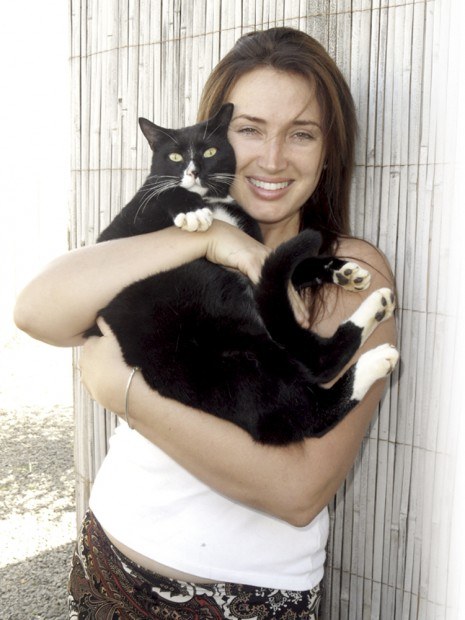In a world teeming with humans, pet parenthood can help save the planet. Forget cats and dogs, it’s raining humans. In 1999, the world population was 6 billion, according to the U.S. Census Bureau. In 2044, it’s expected to hit
In a world teeming with humans, pet parenthood can help save the planet.
Forget cats and dogs, it’s raining humans. In 1999, the world population was 6 billion, according to the U.S. Census Bureau. In 2044, it’s expected to hit 9 billion, an increase of 50 percent in just 45 years. Our species is not just surviving, it’s thriving.
Population growth means increased consumption and pollution on an already dog-eared planet.
The Global Environment Outlook study by the United Nations Environment Program determined that the earth needs a third more land in order to keep up with the demands of the present populace if we are to have a dog’s chance.
The obvious solution is to have fewer children. But for many of us, life would feel empty without a family. Fortunately, companion animals can provide the emotional bonds we crave, yet have a mitigated affect on the environment. Even if Fido is a Frisbee fanatic and Felix fancies fine catnip, their needs are insignificant compared to those of even humble Homo sapiens.
Doubting tomcats may consider pet guardianship a poor substitute for the unique bond of parenthood. But this idea may not be as far-fetched as you’d think. Biologists at Japan’s Azuba University found similar amounts of oxytocin are released whether you’re petting your canine or feline or being near your infant. Oxytocin is the hormone responsible for the attachment that occurs between a mother and her child.
Obviously, there are inherent limitations to pet guardianship. Forget the chicken soup or ride to the doctor’s; pets can do little more than comfort us when we’re under the weather. Still, cohabitating with a cat or dog has health benefits that could help us live longer, healthier lives. These include reduced cholesterol and blood pressure levels that parents of tempestuous teens might envy.
Turning to Felix or Fido for financial support during our golden years is also out of the question. Then again, we may owe them credit for our nest egg. The U.S. Department of Agriculture (USDA) found that it costs roughly $225,000 to raise a child to the age of 18. Instead of a college fund, those savvy at saving could have a mastiff-sized retirement account.
Critics might note that although pets have a lighter impact, they are not exactly sustainable. The full scoop, I mean poop, is 275 pounds of waste per year for an average-sized dog, according to the USDA.
In their book, “Time to Eat the Dog?” — Yes, it was an attention-getting title; no, it did not include recipes — Professors Brenda and Robert Vale calculated the resource demand of various human activities on the Earth’s ecosystems. They found that a German shepherd can have twice the ecological impact as a Toyota Land Cruiser. A cat’s footprint is just less than a Volkswagen Golf. On the other paw, the average American has almost nine times the eco-impact as a resource-guzzling German shepherd.
Obviously, having a pet is not for everyone. But perhaps it’s time the world doesn’t see pet parents as shirking a moral obligation, but rather as embracing one.
Help our planet survive the human hailstorm. Consider completing your family with a pound pooch or puss. But I beg you, please don’t eat them, no matter how delectable they may look.
• Moksha McClure, a life-long vegetarian, is the founder of Whiskers Resort, a pet hotel in Lihu‘e. Visit www.whiskersresort.com or call 241-PETS.


